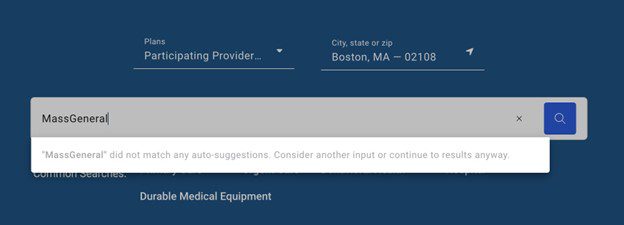For families living in today's rapid-moving society comprehensive health insurance is an essential protection. The combination of increasing healthcare expenses and unpredictable medical emergencies makes it essential to choose proper family health insurance plans that offer protection and peace of mind to your loved ones. Many families grasp basic health insurance concepts but lack knowledge about the full range of benefits they can obtain or understand why choosing the appropriate coverage is essential.
This article investigates how family health insurance plans serve as essential tools for protection while revealing hidden benefits and analyzing trends that emphasize the importance of securing private insurance solutions for families during 2024.
What Are Family Health Insurance Plans?
Family health insurance plans provide a single policy that protects all household members including parents and children. Individuals can access these plans from multiple sources including employers, private insurance companies or government programs such as Medicaid and CHIP. Essential health services provided in coverage extend to preventive care along with emergency services, hospitalizations, prescription medications, mental health services, and sometimes dental and vision care.
Types of Family Health Insurance Plans
Employer-Sponsored Health Insurance Plans: Families often receive health insurance through their workplace where employers provide family coverage as a benefit to their employees. Employers subsidize premium costs which makes these plans cheaper than individual policies available on the open market. Health insurance coverage typically grants subscribers access to an extensive network of healthcare professionals.
Government-Sponsored Health Insurance Plans (Medicaid and CHIP): Low to moderate income families can access government health insurance options like Medicaid and the Children's Health Insurance Program (CHIP). Medicaid supplies complete health coverage to low-income households while CHIP delivers healthcare coverage for children younger than 19 whose families earn beyond Medicaid limits but cannot purchase private insurance. Government-sponsored health insurance programs serve as essential resources for families who lack the financial capability to pay private insurance premiums yet require access to quality healthcare services.
Private Insurance Plans: Individuals can buy private insurance plans directly from insurance companies through either health insurance marketplaces or brokers. While these plans provide customizable coverage options, they usually require families to pay higher premiums. Families often seek these insurance options when they cannot access employer-sponsored insurance or obtain government assistance.
Coverage Details in Family Health Insurance Plans
Family health insurance plans provide solutions for multiple healthcare requirements. Key elements of coverage include:
Private insurance plans provide families with enhanced customization options to select the perfect fit for their needs.
Benefits of Family Health Insurance Plans
1. Preventive Care and Early Diagnosis
Family plans generally include preventive services which enable the detection of health problems at an early stage.
2. Mental Health Coverage
Family plans are increasingly focusing on providing mental health services.
3. Prescription Drug Savings
Families who have health insurance experience substantial reductions in their medication expenses.
4. Dental and Vision Care
Pediatric dental and vision care is part of some family insurance plans and can also be added as an extra service.
5. Emergency Services Coverage
Accidents can happen anytime, and emergency services coverage ensures families are not financially burdened.
Escalating Healthcare Costs.
Rising Healthcare Costs
The cost of healthcare in the United States keeps rising every year.
Expanding Access to Coverage
Medicaid and CHIP programs have grown in scope to lower the number of uninsured people.
Avoiding Common Errors When Selecting Family Health Insurance Plans
Family health insurance plans provide multiple advantages but selecting the best option remains a complex, some common mistakes include:
Which Healthcare Coverage Solutions Exist for People Who Live, Work and Travel Internationally?
Health Care Options for International Lifestyles Worldwide.
People who work internationally or live and travel across borders need to maintain complete health care coverage to protect themselves. This overview presents a range of options designed to fulfill these various needs.
1. International Health Insurance Plans
International Health Insurance Plans are specifically designed for people who work abroad and travel for extended periods. They typically offer:
2. Travel Medical Insurance
Travel medical insurance provides coverage for unforeseen medical emergencies for travelers on brief trips abroad.
3. Remote Worker Health Plans
The rise in remote work popularity has led to the creation of specialized health plans designed specifically for digital nomads.
4. Short-term Health Insurance
During transitional life phases these plans deliver temporary health coverage.
An expatriate establishing life in a new nation or a digital nomad traveling frequently have access to diverse health care options for their international lifestyle along with frequent flyers. Selecting your healthcare plan requires an evaluation of your individual circumstances and needs to guarantee your health protection while enjoying worry-free international travel.
Identify Local Health Insurance Plans Which Fit Your Personal Requirements
The process of choosing the right local health insurance might appear daunting but becomes manageable when you approach it step by step. This guide will help you effectively manage the navigation of the process.
1. Research Local Providers
Begin your search by exploring online resources from well-known insurance providers situated locally. Local insurance options become accessible when you conduct online searches or review company listing directories.
2. Use Online Tools
Numerous insurance companies provide digital tools to help simplify searching for coverage. You can find insurance plans that match your needs by entering your zip code into available online resources.
3. Compare Plan Options
During the evaluation of various plans take into account several important elements:
4. Consider Network Options
The selected plan should list your trusted doctors and hospitals as part of its network. Each healthcare network is different and you need to confirm that your chosen doctors and hospitals are part of your insurance plan's network.
5. Seek Professional Advice
When selecting a health plan becomes confusing you should get guidance from a healthcare insurance advisor. Their expertise enables them to suggest plans that match your individual needs.
6. Review and Select a Plan
Once you've completed your detailed research and evaluated available options choose the plan which best matches your healthcare requirements and financial resources.
Following these steps allows you to find local health insurance that meets your needs while providing peace of mind through comprehensive coverage.
Conclusion: Finding the Right Family Health Insurance Plan
Selecting an appropriate family health insurance plan holds significant importance in today's healthcare environment. As healthcare costs rise and comprehensive services become more necessary, family plans provide protective coverage for both physical well-being and financial stability.
Private insurance plans offer families customizable coverage options which adapt to their specific needs. Families that work together with an intermediary such as PEO4YOU find it easier to understand private insurance plans while locating choices that match both their financial limits and personal preferences.
Trusted guidance and customized family health insurance options await you at PEO4YOU where you can ensure your loved ones receive dependable coverage which brings peace of mind.
Recent Posts
Get In Touch— We’re available 24/7
"*" indicates required fields
“We respect your privacy. Your contact information will be used solely for the purpose of responding to your inquiry and will not be shared with third parties.”
Click To Open Modal
Get In Touch— We’re available 24/7
"*" indicates required fields
“We respect your privacy. Your contact information will be used solely for the purpose of responding to your inquiry and will not be shared with third parties.”
Thanks!
We will be in touch soon.
If you're looking to book a consultation now
Affordable health and benefits plans for small businesses, freelancers, and independent contractors.



Copyright © 2026. Peo4you. All rights reserved.











